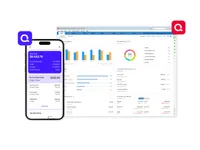Documents You Need to Change When You Get Married: A Checklist
Getting your financial and legal forms in order isn’t romantic, but it’s important.


Profit and prosper with the best of Kiplinger's advice on investing, taxes, retirement, personal finance and much more. Delivered daily. Enter your email in the box and click Sign Me Up.
You are now subscribed
Your newsletter sign-up was successful
Want to add more newsletters?

Delivered daily
Kiplinger Today
Profit and prosper with the best of Kiplinger's advice on investing, taxes, retirement, personal finance and much more delivered daily. Smart money moves start here.

Sent five days a week
Kiplinger A Step Ahead
Get practical help to make better financial decisions in your everyday life, from spending to savings on top deals.

Delivered daily
Kiplinger Closing Bell
Get today's biggest financial and investing headlines delivered to your inbox every day the U.S. stock market is open.

Sent twice a week
Kiplinger Adviser Intel
Financial pros across the country share best practices and fresh tactics to preserve and grow your wealth.

Delivered weekly
Kiplinger Tax Tips
Trim your federal and state tax bills with practical tax-planning and tax-cutting strategies.

Sent twice a week
Kiplinger Retirement Tips
Your twice-a-week guide to planning and enjoying a financially secure and richly rewarding retirement

Sent bimonthly.
Kiplinger Adviser Angle
Insights for advisers, wealth managers and other financial professionals.

Sent twice a week
Kiplinger Investing Weekly
Your twice-a-week roundup of promising stocks, funds, companies and industries you should consider, ones you should avoid, and why.

Sent weekly for six weeks
Kiplinger Invest for Retirement
Your step-by-step six-part series on how to invest for retirement, from devising a successful strategy to exactly which investments to choose.
When it comes to weddings, October is the new June. In 2023, October was the most popular month to get married, and 42% of weddings took place between September and November, according to a survey from TheKnot.com.
No matter when you get married, you’ll have to do a lot of paperwork. Colie Christiansen founded NewlyNamed, which provides a kit designed to streamline the process, after she had to spend hours online and take a day off from work to locate and file the documents she needed to update after her wedding.
Here are some of the most important documents you should change after you tie the knot.
From just $107.88 $24.99 for Kiplinger Personal Finance
Become a smarter, better informed investor. Subscribe from just $107.88 $24.99, plus get up to 4 Special Issues

Sign up for Kiplinger’s Free Newsletters
Profit and prosper with the best of expert advice on investing, taxes, retirement, personal finance and more - straight to your e-mail.
Profit and prosper with the best of expert advice - straight to your e-mail.
Social Security card. If you change your name after you get married, make sure you notify the Social Security Administration of your new legal name. To update the name on your Social Security record, you’ll need to provide your photo identification, birth certificate and marriage certificate.
Once you’ve gathered those documents, download and fill out Form SS-5. Bring all the documents to your local Social Security office (find it at www.ssa.gov/locator). You should get your new Social Security card in 10 to 14 business days.
Take this step before you file your first tax return as a married couple. If the name on your tax return doesn’t match the name on file with Social Security, the IRS may delay processing your return, which will also delay any refund you’re eligible to receive.
Driver’s license and bank accounts. Once you have your new Social Security card, bring it and your current driver’s license to your state’s department of motor vehicles (DMV) to get a new license with your correct name. You can use this, along with your new Social Security card, to update the name on your bank accounts.
Wills and trusts. After you’re married, you’ll probably want to update your will or trust to name your spouse as your beneficiary, says Flavio Landivar, senior financial adviser at Evensky & Katz/Foldes Wealth Management. You may want to contact an estate attorney to discuss how your marriage status will affect your estate plan.
Insurance. Marriage is considered a “qualifying life event,” which means you should be able to add your spouse to your employer-provided health insurance plan without waiting for an open-enrollment period. (Most plans allow you to add a spouse, but check whether doing so triggers a costly surcharge.) If both you and your spouse have company-provided health insurance, review each plan to determine whether it makes sense to use just one plan instead of two.
If you have a life insurance policy, you’ll likely want to make your spouse the beneficiary. Review any policies you and your spouse have to determine whether you want to keep them, Landivar says. “It may make sense to pick one policy for the both of you that has the best premiums and benefits,” he says.
Tax forms. Within 10 days of getting married, you should provide your employer with a new Form W-4, which determines how much income tax will be withheld from your wages. You’re not required to change your withholding after marriage, but your combined income could affect the amount you should have withheld to avoid underpaying (or overpaying) your taxes. A certified public accountant or enrolled agent can help you hammer out the details, or use the IRS withholding estimator.
Note: This item first appeared in Kiplinger's Personal Finance Magazine, a monthly, trustworthy source of advice and guidance. Subscribe to help you make more money and keep more of the money you make here.
Quicken LifeHub $1.99 p/m (when billed annually).
Protect your important information from floods, fires and other disasters. Stored in the cloud. Easily share documents and transfer ownership to loved ones when needed.
Related Content
Profit and prosper with the best of Kiplinger's advice on investing, taxes, retirement, personal finance and much more. Delivered daily. Enter your email in the box and click Sign Me Up.

Ella Vincent is a personal finance writer who has written about credit, retirement, and employment issues. She has previously written for Motley Fool and Yahoo Finance. She enjoys going to concerts in her native Chicago and watching basketball.
-
 Over 65? Here's What the New $6K 'Senior Deduction' Means for Medicare IRMAA Costs
Over 65? Here's What the New $6K 'Senior Deduction' Means for Medicare IRMAA CostsTax Breaks A new deduction for people over age 65 has some thinking about Medicare premiums and MAGI strategy.
-
 U.S. Congress to End Emergency Tax Bill Over $6,000 Senior Deduction and Tip, Overtime Tax Breaks in D.C.
U.S. Congress to End Emergency Tax Bill Over $6,000 Senior Deduction and Tip, Overtime Tax Breaks in D.C.Tax Law Here's how taxpayers can amend their already-filed income tax returns amid a potentially looming legal battle on Capitol Hill.
-
 5 Investing Rules You Can Steal From Millennials
5 Investing Rules You Can Steal From MillennialsMillennials are reshaping the investing landscape. See how the tech-savvy generation is approaching capital markets – and the strategies you can take from them.
-
 It's Time to Rethink What 'Aging Well' Means
It's Time to Rethink What 'Aging Well' MeansDon’t fall into the trap of thinking there is a "right way" to age. Here's how to reframe aging in a healthy, achievable way.
-
 I’ve Played 1,300-plus Golf Courses: These Are the 4 on My 'Must-Play' List for 2026
I’ve Played 1,300-plus Golf Courses: These Are the 4 on My 'Must-Play' List for 2026These four luxury golf courses offer an extraordinary experience for players this year.
-
 How to Plan a (Successful) Family Reunion
How to Plan a (Successful) Family ReunionFrom shaping the guest list to building the budget, here's how to design a successful and memorable family reunion.
-
 Is Direct Primary Care Right for Your Health Needs?
Is Direct Primary Care Right for Your Health Needs?With the direct primary care model, you pay a membership fee for more personalized medical services.
-
 Smart Ways to Share a Credit Card
Smart Ways to Share a Credit CardAdding an authorized user has its benefits, but make sure you set the ground rules.
-
 Tip: Ways to Track Your Credit Card Rewards
Tip: Ways to Track Your Credit Card RewardsHere are the best strategies and apps to help you stay current with your credit card rewards.
-
 How We Manage Our Finances Together as a Married Couple
How We Manage Our Finances Together as a Married CoupleDouglas Boneparth, a certified financial planner, and his wife, Heather Boneparth, speak with Kiplinger about couples managing finances.
-
 Where to Stash Cash as Yields Fall, According to Advisers
Where to Stash Cash as Yields Fall, According to AdvisersYour best options depend on how soon you'll need the money and your tolerance for risk.
